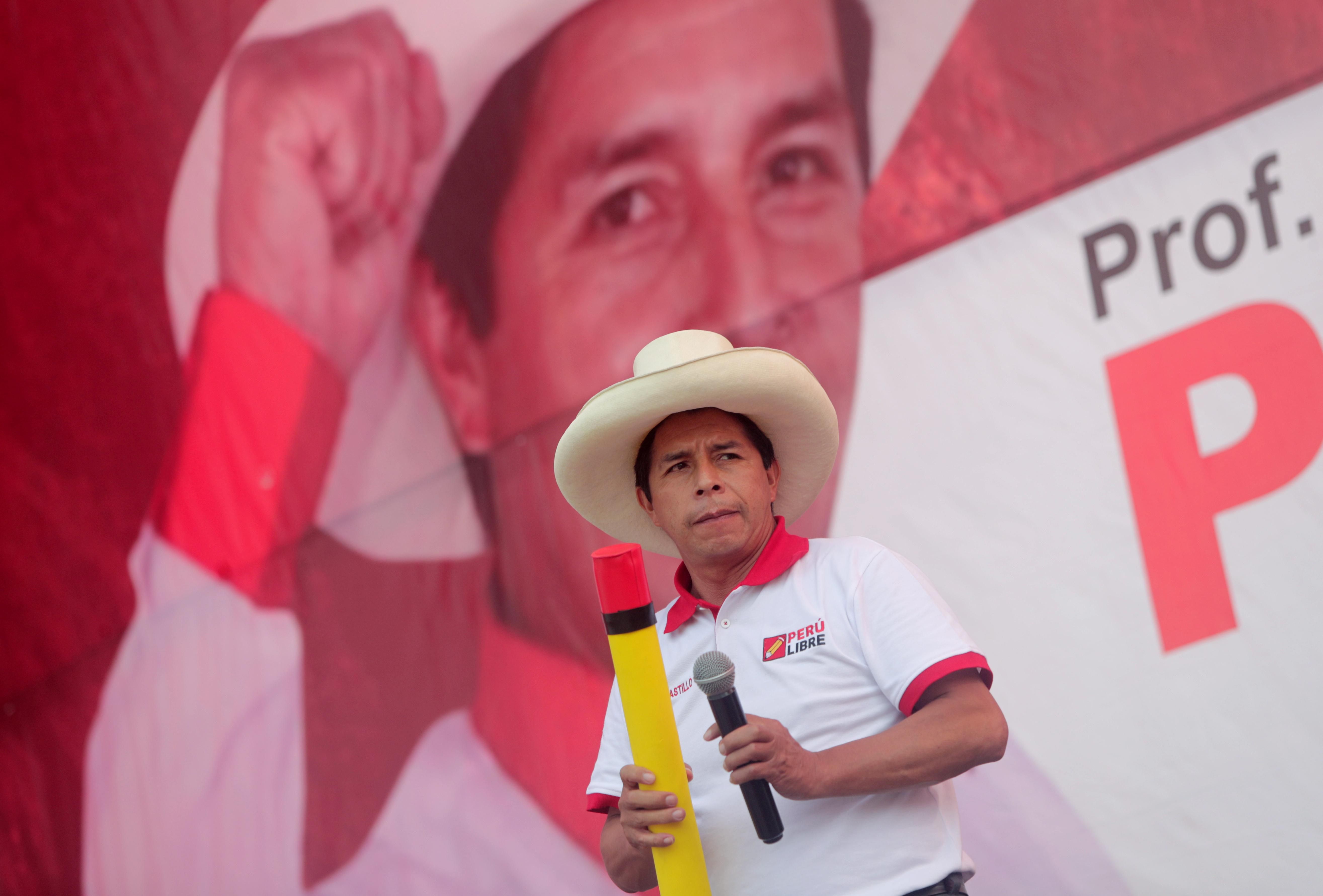Fed up with years of political dysfunction, and wracked by the world's worst per capita COVID death toll, Peruvians have made a radical new choice for president.
After a day or so of nail-biting uncertainty, the results of Sunday's runoff appear to show that Pedro Castillo, a Marxist-leaning former schoolteacher who gets around on horseback and carries an oversized pencil with him everywhere, has edged out Keiko Fujimori, the authoritarian-minded daughter of the country's former dictator.
Who is this guy? Barely known to most Peruvians until just months ago, Castillo shocked the political establishment by advancing to the second round of the presidential election with just under 19 percent of the vote. Now he has won the top job by defeating Fujimori, a deeply unpopular yet immensely powerful rival who has lost her third bid for the presidency.
Castillo's victory is a backlash against the political class. Last November, mass street protests erupted when the country churned through three presidents in a single week following the impeachment of the incumbent for a vote-buying scandal years before he took office. With about half of Peruvian lawmakers currently under investigation for crimes from money laundering to homicide, it's no surprise that turnout was well below Peru's historical average for presidential votes, and that a (slim) majority of voters have placed their trust in an outsider like Castillo to stand up to Lima's corrupt swamp.
Indeed, Castillo styles himself as a man of the people. His signature is a cowboy hat, and his horsemanship is part of his rustic appeal. The giant pencil, meanwhile, symbolizes his party's focus on educating the rural poor. At the same time, he's also a pragmatist — to broaden his appeal beyond the countryside, in the past he has been willing to strike deals with players as wide-ranging as former members of the far-left Shining Path guerrilla movement on the one hand, and members of Fujimori's party on the other.
What are the next president's plans for Peru? Castillo has ambitious policy proposals, which his supporters say most Peruvians want: rewrite the constitution, spend 10 percent of GDP on education and health, and redistribute mining profits to fund social programs. Perhaps in a nod to more moderate voters, he's already walked back earlier calls to dissolve Congress if lawmakers don't agree to reform the charter, and nationalize strategic industries.
For his opponents, however, Castillo is another Hugo Chávez who will turn Peru into Venezuela by overturning three decades of pro-business reforms that have brought prosperity to the country. So far, the markets agree — the value of the Peruvian sol sank on Monday to its lowest value against the US dollar in seven years, and the stock market plunged more than seven percent.
Castillo's agenda will face tough roadblocks in a highly fragmented and dysfunctional Congress. His party only has 37 of the 130 seats in parliament, which is dominated by smaller right-wing formations that are more likely to cut deals with Fujimori. What's more, the bar for impeaching a Peruvian president has lately been set so low that if Castillo pushes lawmakers too hard, two-thirds of them could vote to oust Castillo over the vague charge of "moral incapacity."
And don't forget... Perú is still being pummeled by twin health and economic crises. Last week, the government revised its official COVID death toll upwards, to nearly triple the earlier number, which means the Andean country has the world's highest death rate per capita. And nearly 28 percent of Peruvians now live in poverty due to COVID, almost double the figure before the pandemic struck.
So, what comes next? It's hard to say. A polarizing election means that half of the country will be against whatever Castillo wants to do, while the other half will be willing to take to the streets if the political establishment stands in the way of the change they want.
Without a sweeping popular mandate or strong backing in parliament, there's only so much an outsider can do to stand up to an entrenched elite. Peruvians' frustration with dysfunction brought Castillo to power, but will he be able to change things?
